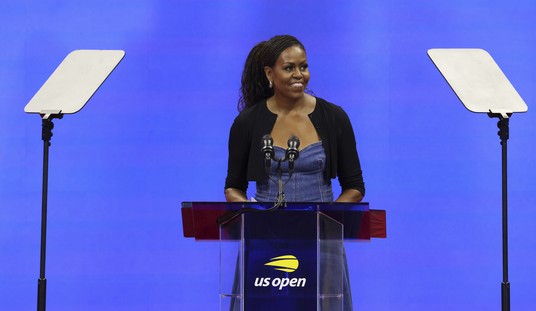So where does Democratic presidential contender Hillary Clinton stand on Common Core? The answer is she’s squarely on the side of national standards and assessments, because she played a key role, along with other insiders, in getting this statist scheme rolling a quarter-century ago.
That is not to say she can’t take a few shots at pro-Common-Core educrats to please parents thoroughly fed up with the math and English prescriptions being imposed on their schools.
Meeting with Newsday’s editorial board on April 11, Clinton may have impressed some dissenters by slamming New York state’s rollout of Common Core directives as “disastrous.” Although she didn’t name names, her criticism was applicable to President Barack Obama’s new secretary of education, John King, who as state commissioner of education led New York’s hurried debut of Common Core.
King’s imperious leadership provoked so much ire that one of New York’s U.S. senators, Kirsten Gillibrand, wound up voting against his confirmation as U.S. education secretary. King’s tenure in New York, Gillibrand said, “was very adversarial, leaving families, students, and teachers without a voice on important issues.” If Newsday’s editors had wanted to put their guest on the spot, they could have asked Clinton how she would have voted if she were still serving in the Senate.
To their credit, the editors did elicit from Clinton a declaration that she has “always supported national standards.” That is the essence of Common Core, by whatever name: one-size-fits-all, government-imposed uniformity, or education redefined to meet national goals. Clinton believes any problems lie merely in the process of implementation, the “rollout.” The substance is just right.
Recommended
Even before her husband’s election as president in 1992, Clinton worked closely on education reform geared to national workforce development in association with Marc Tucker of the National Center on Education and the Economy (NCEE). Tucker continues to be a prime mover with Common Core to this day.
In 1990, Clinton, an NCEE trustee, collaborated with industrial consultant Ira Magaziner to promote recommendations made by the U.S. Labor Department’s Commission on the Skills of the American Workforce, which issued a series of reports breaking down in minute detail every work-related, certifiable skill schools should teach all students. Later, the duo would team up again to devise what became Clinton’s failed national health care proposal.
In March 1992, Clinton and Magaziner argued in the education journal Educational Leadership that it was imperative for the United States to have a single system of performance-based standards that virtually all students would have to meet at age 16.
Without a “Certificate of Initial Mastery,” they argued, students should not be allowed to go on to work, college, or technical training. Dropouts would be shunted off to youth centers, which they termed “an essential component of the whole strategy for national human resource development.”
Forced early choice between work and college draws from the German model. The statist plotting of a new economic man is nothing if not Soviet.
When Bill Clinton was elected president in November 1992, Marc Tucker could not contain his ebullience. In an 18-page “Dear Hillary” letter, Tucker foresaw with the Clintons’ ascension a chance to create “a seamless web of opportunities, to develop one’s skills that literally extends from cradle to grave and is the same system for everyone.”
This statist’s dream world would consist of “a national system … in which curriculum, pedagogy, examinations, and teacher education and licensure systems are all linked to the national standards.” In other words, Common Core to the core.
Under Bill and Hillary Clinton, the Goals 2000 Act and the School-to-Work Act made a significant move toward establishing this system. When grassroots opposition slowed its advance, the collaborators did not despair. Their big-business allies organized as Achieve, Inc. and were ready to advance the agenda via Common Core when the Obama administration came to town. President George W. Bush had helped the cause by instituting federally mandated testing under No Child Left Behind.
Hillary’s recent pandering to New York parents who are opting out of Common Core testing in droves caused New York magazine to fret in its April 12 edition that she and Bill are deserting school reform. Given her long and extensive work for nationalization of education, it is extremely unlikely she is abandoning the agenda. Whether such a totalitarian scheme ever deserved to be called “reform” is another question.

























Join the conversation as a VIP Member